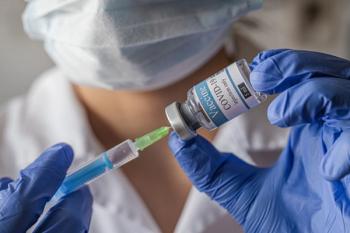
COVID-19 mRNA vaccines enhance immune checkpoint inhibitor effectiveness in cancer therapy, significantly improving survival rates for patients with advanced tumors.

COVID-19 mRNA vaccines enhance immune checkpoint inhibitor effectiveness in cancer therapy, significantly improving survival rates for patients with advanced tumors.

Oncologists increasingly embrace cell and gene therapies, yet barriers like cost and perceptions of risk hinder broader adoption.
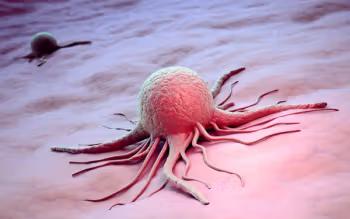

Personalized cancer vaccines target tumor heterogeneity, enhancing immune responses and improving treatment outcomes in diverse cancer types.

Experts at ESMO 2025 highlight antibody-drug conjugates in HER2-positive metastatic breast cancer treatment.

Emerging biomarkers and targeted therapies are reshaping the landscape of lung cancer treatment and drug development.

Advances in targeted therapies, combination approaches, and novel treatment strategies are shaping the management of drug-resistant lung cancer.

Insights from ESMO 2025 highlight advancements in non-small cell lung cancer treatment, focusing on novel therapies and molecular diagnostics.

New data from the NATALEE trial reveals ribociclib significantly improves invasive disease-free survival in HR+/HER2– early breast cancer.
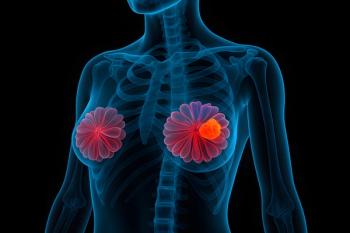
Adjuvant abemaciclib plus endocrine therapy significantly enhances overall survival in high-risk HR-positive HER2-negative breast cancer.

Durvalumab combined with FLOT shows significant survival benefits for patients with resectable gastroesophageal junction cancer, regardless of PD-L1 status.

Nivolumab plus chemotherapy and ipilimumab show significant long-term survival benefits for advanced esophageal squamous cell carcinoma.

Research reveals that statins and metformin enhance survival rates in early-stage triple-negative breast cancer, offering hope for affordable treatment options.

The move emphasizes the need for vigilant monitoring.
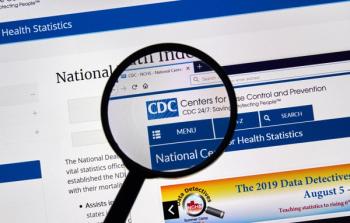
CDC layoffs threaten public health surveillance, prompting urgent reinstatement of staff as pharmacists face challenges in community health response.
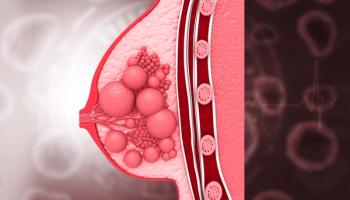
Invasive lobular carcinoma poses unique detection and treatment challenges, highlighting the urgent need for targeted research and improved survival strategies.
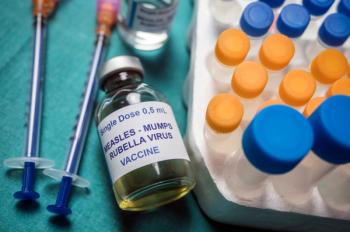
Researchers highlight the critical link between school vaccination rates and measles outbreaks, urging targeted public health strategies to combat misinformation and improve MMR coverage.

Combining tramadol with CYP2D6-inhibiting antidepressants raises seizure risk in older adults, highlighting the need for careful medication management.

Repetitive DNA mimics pathogens, influencing cancer immunity and immunotherapy.
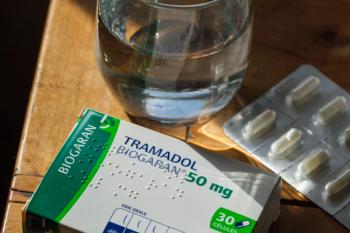
Tramadol provides only limited pain relief while carrying a significant risk of serious adverse effects.

Niraparib combined with standard therapy significantly improves progression-free survival in men with HRR-deficient metastatic castration-sensitive prostate cancer.

Medicaid expansion enhances 5-year cancer survival rates in rural and high-poverty areas, highlighting the importance of financial support for better health outcomes.

Frail patients with multiple myeloma (MM) can safely reduce dexamethasone use, enhancing treatment outcomes without increasing infection risks.


BMS-986446 shows promise as a fast-tracked therapy for early Alzheimer disease, targeting tau protein to alter disease progression.

Research highlights the effectiveness of the albuterol-budesonide combination for ensuring rapid relief and safety in patients with asthma.

New research links oral bacteria and fungi to pancreatic cancer risk, suggesting oral microbiota as potential noninvasive biomarkers for early detection.

Cevostamab shows promise as a post-CAR T therapy for relapsed/refractory multiple myeloma, enhancing MRD-negative responses and improving patient outcomes.

Etentamig shows promise in managing infections for relapsed/refractory multiple myeloma.

Anitocabtagene autoleucel shows impressive efficacy and safety in treating relapsed/refractory multiple myeloma, achieving a 97% overall response rate.